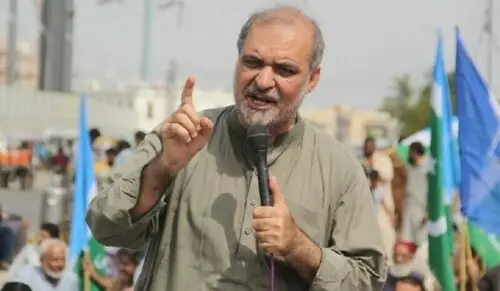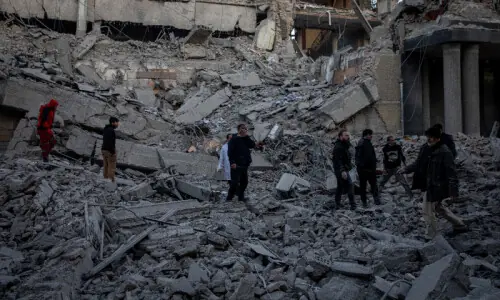KARACHI: The Sindh government has set an ambitious target for 2021-22 to address the growing challenge of environmental issues, setting aside more than a billion rupees for that purpose — the highest-ever budget for the area in the province’s history — with focus on sewage treatment plants in major cities and urban foresting to cover 2,000 acres in and around cities and towns of the province.
The budget announced by Chief Minister Syed Murad Ali Shah in the Sindh Assembly last month finally took a shape to get executed with the beginning of several new financial targets that appeared to be an uphill task for the authorities to complete them within a year. However, his Adviser on Law, Environment, Climate Change and Coastal Development, Barrister Murtaza Wahab, sounded confident saying the budget allocations were made considering all deliberations and it was his ministry that had designed the ambitious plans in view of the growing climate and environment challenges.
Three sewage treatment plants in Karachi to be made functional
“Last year [2020-21] our budget was Rs145 million,” he told Dawn while explaining reasons behind such a jump in the allocations and targets set for the new fiscal. “This year we have allocated Rs1.2 billion, which is multiple times higher than it was last year. But there is a reason for this major shift. We have a lot more work to do this [financial] year. We have already finalised our climate change-related policy and considering challenges of urban infrastructure and major change in the weather trend.”
He then referred to a few projects which would get key focus of the provincial government in the current financial year and Karachi, being a major urban centre of the province, would remain under serious consideration of the authorities. He said the government was going to make three sewage treatment plants in Karachi functional to safely discharge wastewater of the city into the sea.
“These three plants, one each in Mahmoodabad, Lyari and Clifton, will greatly help reduce the load of water pollution on our marine environment,” he said about the expected outcome of the plants which were officially called TP-I, TP-II and TP-3 with a combined capacity of 150 million gallons per day. However the gradual decline in their functions finally made them non-functional, leaving more than 15 million Karachiites to discharge 100 per cent of their raw sewage into the nearest coastal waters.
The budget document suggests that the environment came at the seventh most prioritised area of the Sindh government in the budget 2021-22 after education, health, agriculture, infrastructure development, local government and irrigation.
The CM adviser said that apart from focus on the environment, the Sindh government had set half of its allocations for the coastal development. In his budget speech, the Sindh CM had announced Ten Billion Tree Tsunami Programme (TBTTP/GPP) with 50pc from the federal government and as much share by the province.
“Similarly, a water treatment plant in Tando Adam is being planned that will be a major development in the area of environment,” said Mr Wahab. “Apart from this, we have been planning Rs100 million urban foresting. I personally believe that every concerned citizen has to play his or her due part in this regard by planting a sapling for increasing the green cover at their homes, streets, and neighbourhoods. For that we are soon launching a comprehensive campaign.”
According to the budget document, the Sindh government for this year had targeted regeneration and forest development in Riverine Forests on 25,000 acres besides development of irrigated plantations on 6,500 acres. Similarly, it has planned mangrove forest that would be planted and protected over 35,000 acres. A huge target of 35 million container plants will also be developed in the network of departmental and youth nurseries for supply of plants to interested stakeholders at subsidised rates.
Published in Dawn, July 12th, 2021































